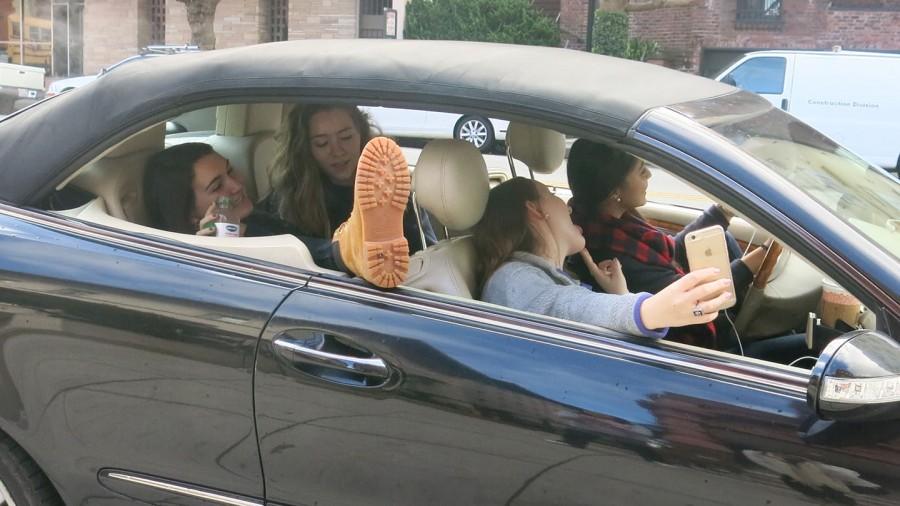Driving duties extend to passengers when on the road
February 5, 2016
Drivers are often held responsible for driving with distractions, such as blaring music, texting, and intoxication, but passengers can be equally accountable when they add to the disturbance rather than eliminate it.
“Driving is a very difficult task, and a driver’s mind has to be on driving,” Kathy Bernstein, National Safety Council Teen Driving Expert, said. “It’s driving time, not social time.”
Distraction and lack of experience cause the majority of serious crashes involving teen drivers, according to a study by the Center for Injury Research and Prevention at Children’s Hospital of Philadelphia with State Farm Insurance Companies.
“Passengers screaming or making loud noise or those who are sometimes changing in the car distracts me,” driver Paula Gutman said. “Having a calm conversation with music or watching out for me when I’m backing out is helpful.”
Both passengers and drivers should take initiative to make sure seat belts are being used and younger passengers stay calm, according to TeenSpeak, an organization for teens by the Center for Young Women’s Health.
“I talk to my dad, so he doesn’t drift off, or I give him water and a little food,” sophomore Starr Hooper said. “My mom is always on her phone, so I make sure she’s talking out of her Bluetooth, or I’ll read the text out to her and type the message.”
Bernstein says when drivers and passengers are too tired, pulling over and stretching out to take a break can also be helpful. She also advises that unless necessary, communication should be reduced altogether.
“Passenger restriction and night time limitation laws for teens are not there cause you’re younger but because you are inexperienced,” Bernstein said. “They’re there to help you not get hurt. Pay attention to them and follow them.”










